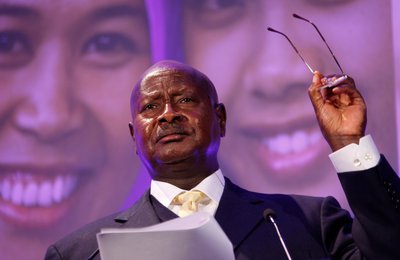Concerns over renewed terrorist threats in the African continent appear to have overshadowed the ongoing African Union (AU) delegates’ conference taking place in Kampala, Uganda. Despite the original themes of combating child and maternal mortality, the summit began with more of a focus on security issues within the continent.
Barely a week before the summit was scheduled to commence, two suicide bombers blew themselves up amidst a joyous crowd watching the 2010 Soccer World Final match between Spain and the Netherlands in two different venues in the Ugandan capital Kampala. The Somalia dissident group Al-Shabaab, an extremist organization with alleged links to Osama bin Laden’s al-Qaeda claimed responsibilities blaming Uganda’s deployment of peacekeeping troops in Somalia under AU auspices. This atrocious act which left over 75 innocent Ugandans dead and more than 200 injured shocked the world and largely overshadowed the very successful World Cup hosted by South Africa; the first time the event has been held in the continent.
At the summit in Kampala, African leaders met behind closed doors to discuss boosting the AU’s peace keeping forces in Somalia following a plea by Ugandan President Yoweri Museveni to “sweep the terrorist” off the continent. While many countries expressed their inability to contribute troops to Somalia, many AU members indicated the importance of AU success in Somalia and defeating extremists groups within the continent. The AU summit observed two minutes of silence for the victims of the attacks. Addressing the summit, Museveni said that the “bombings were meant to bully Uganda into pulling out of the AU Mission in Somalia (AMISOM); the last thing standing between the Shabaab and total power.” He pledged to send 2,000 more troops and urged more decisive international support. Leaders of the Somalia Transitional Government stressed that the attacks were evidence that Somalia required the world’s attention. In a rare show of determination, the AU President Jean Ping promised to seek a tougher mandate for AMISOM under the United Nations Charter’s Chapter Seven, allowing it to take more aggressive action including engaging and attacking the enemy. Mozambique, South Africa, Djibouti and Guinea appeared willing to pledge more troops to AMISOM, whose current deployment consists of just over 6,000 Ugandans and Burundians.
For the people of Uganda, however, their hope is that their grief will not be forgotten, justice will be done with full measure of reparation, and that their government will use the tragedy to promote peace, human rights and good governance. As Ugandans ended a week-long official mourning for the victims of the terrorist attack, many families, relatives and friends of the victims continued to ask questions like "What did they do to deserve this?" and "Will other African states stand up and be counted in this mission or shy away?" Al-Shabaab might hate the government of Uganda but the people they killed had nothing to do with their government’s decision to send troops to Somalia.
Stephen Oola, Uganda Local Correspondent, 28 July 2010






